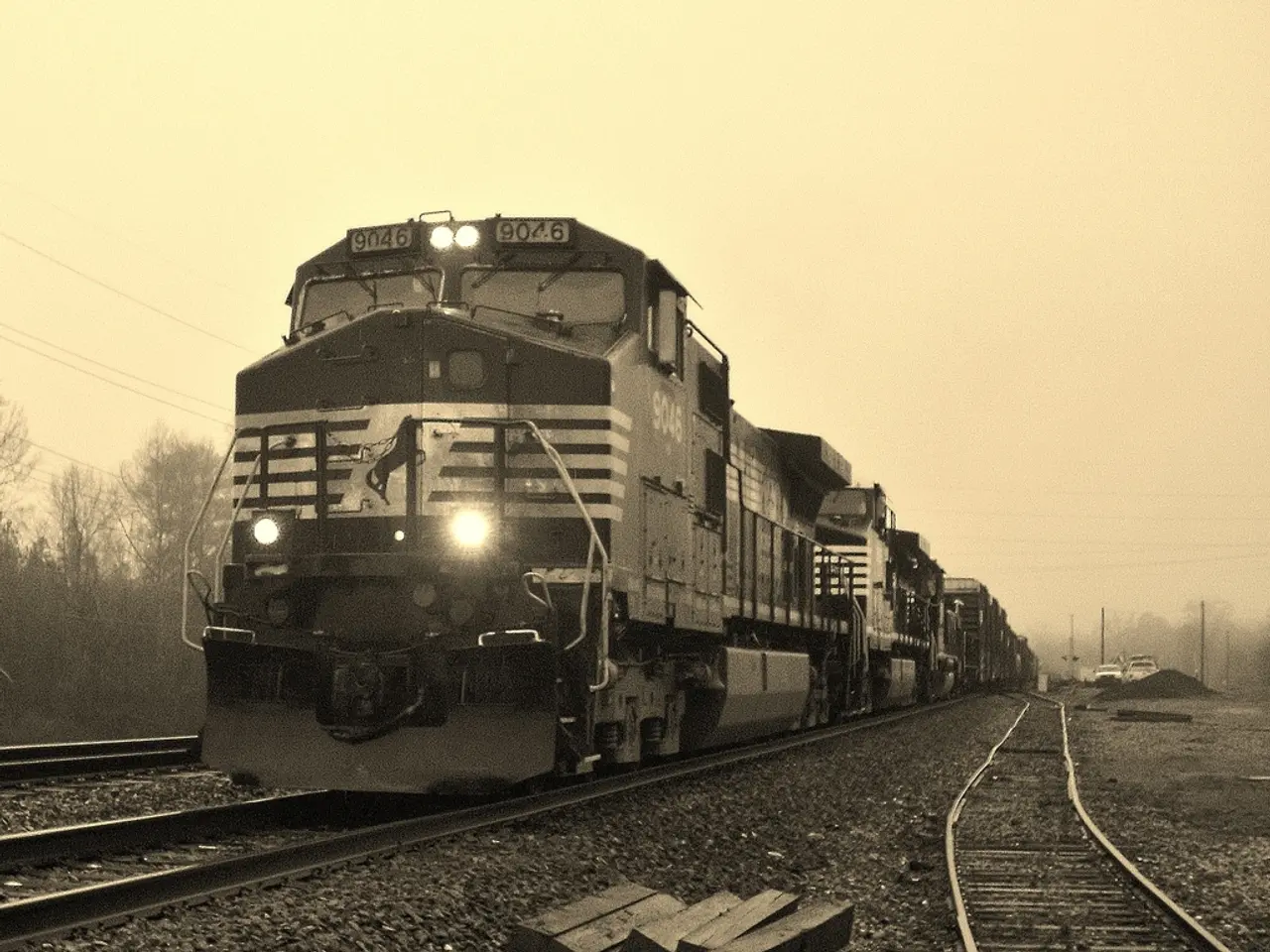Leading African Countries Boasting Notable Railway Systems by 2025
Africa is witnessing a significant transformation in its railway infrastructure, with several countries modernizing and expanding their networks to boost connectivity and support economic growth.
In Algeria, a 4,001 km railway network is currently in place, with only 664 km electrified. The North African nation is now constructing high-speed long-distance corridors across its desert terrain, with flagship projects such as the Hassi Messaoud - Touggourt and Oued Tlelat - Tlemcen lines underway.
The Democratic Republic of the Congo (DRC) is also part of this railway revolution. As part of the Lobito Corridor project, a US$10 billion initiative backed by the US Government, the DRC is modernizing its railway network.
Morocco, a pioneer in high-speed rail in Africa, operates at 320 km/h, and is expanding its 2,295 km network, which includes the first and fastest high-speed train, the Al Boraq. Egypt is following suit, building over 2,000 km of electric high-speed travel corridors, with Siemens, Orascom, and Arab Contractors developing a 2,000 km high-speed rail system set for speeds of 230 km/h.
South Africa, with the longest rail network in Africa at 20,953 km, is the most advanced in terms of infrastructure. The country has ZAR 152.8 billion ready for investment, and plans to expand high-speed rail lines around 2025. Kenya's rail network, operationalized by the Standard Gauge Railway (SGR), has a total length of 2,638 km, with a strong infrastructure quality of 4.0/7.0.
Tunisia's rail network, spanning 1,777 km, with 226 km electrified, is operated by the Société Nationale des Chemins de Fer Tunisiens (SNCFT). The country is modernizing its network with a focus on enhancing urban commuter rail systems and intercity connections.
Egypt's railway network, extending over 6,679 km, with over 3,000 km electrified, is also modernizing to become a high-speed rail powerhouse.
Mozambique's railway system, crucial for the regional economy, supports mineral and cargo exports, and is managed through public-private partnerships. Tanzania, another East African rail leader, is quickly emerging due to its Standard Gauge Railway (SGR) project, with plans for a fully electrified futuristic design.
Nigeria is concentrating railway construction in receptive standard-gauge regions, with ongoing plans for expansion. The country's urban commuter advancements, like the Nairobi Commuter Rail in Kenya, contribute to its infrastructure quality.
By 2025, over 8 African countries are expected to have modernized or expanded their railway infrastructure. Future targets in Tunisia include new trains, digitized systems, and increased electrification. The railway network in Tanzania has an infrastructure quality of 3.2 out of 7.0, while Tunisia's network scores 3.2.
South Africa and Nigeria plan to expand high-speed rail lines around 2025, with South Africa working on networks between Pretoria, Johannesburg, Durban, and Limpopo province, and Nigeria planning a high-speed rail system south of the Sahara with Chinese support. Egypt is also building high-speed rail, but with a later timeline.
In conclusion, Africa's railway revolution is gathering pace, with countries investing heavily in modernizing and expanding their networks to boost connectivity and support economic growth. The future of rail travel in Africa looks promising, with high-speed trains becoming a reality and electrification becoming more widespread.
Read also:
- Understanding Hemorrhagic Gastroenteritis: Key Facts
- Trump's Policies: Tariffs, AI, Surveillance, and Possible Martial Law
- Expanded Community Health Involvement by CK Birla Hospitals, Jaipur, Maintained Through Consistent Outreach Programs Across Rajasthan
- Abdominal Fat Accumulation: Causes and Strategies for Reduction








